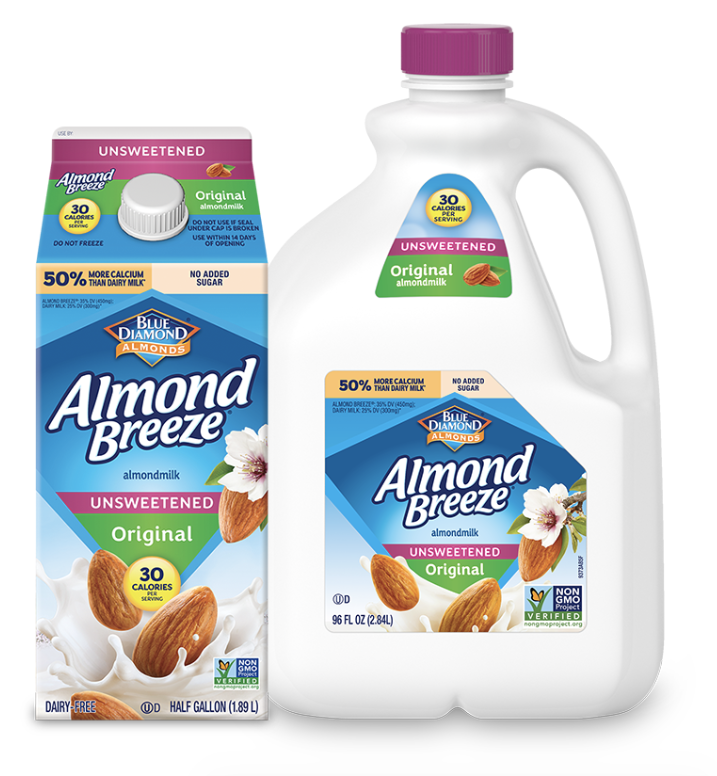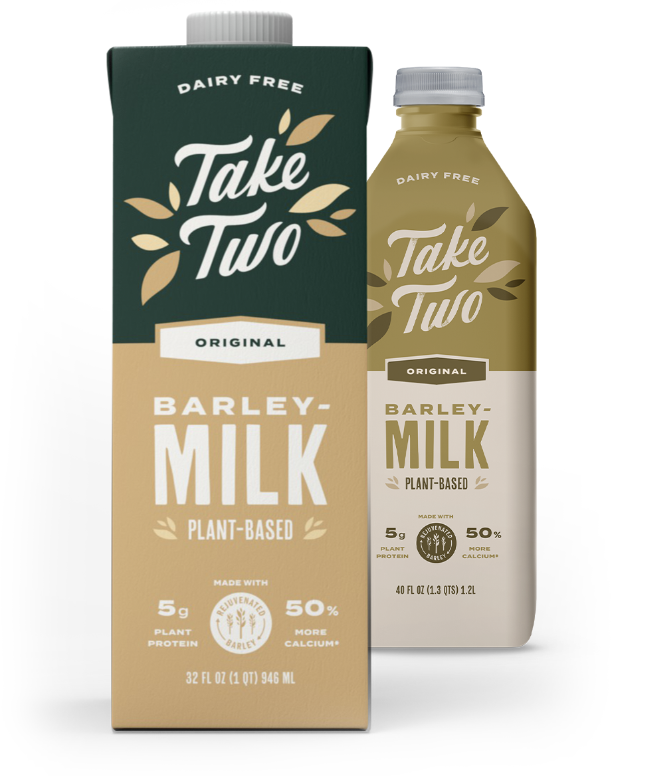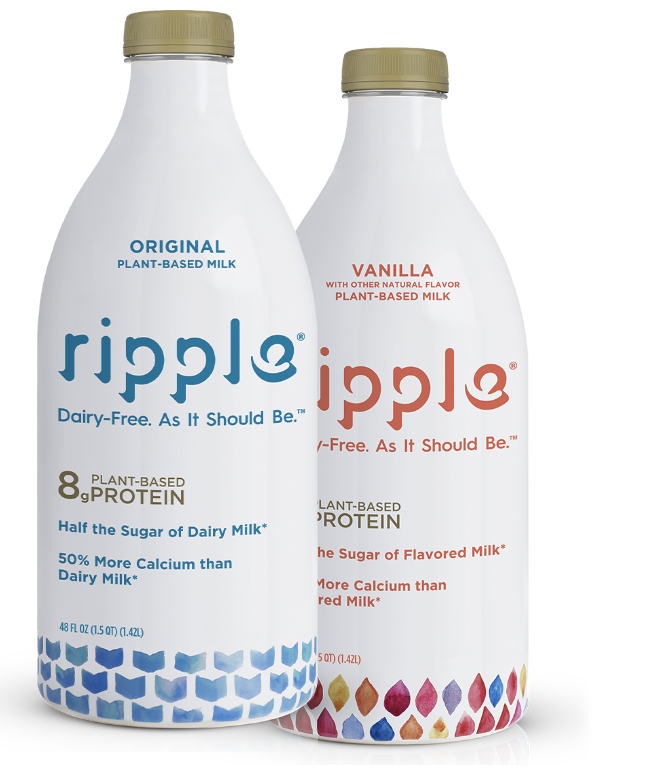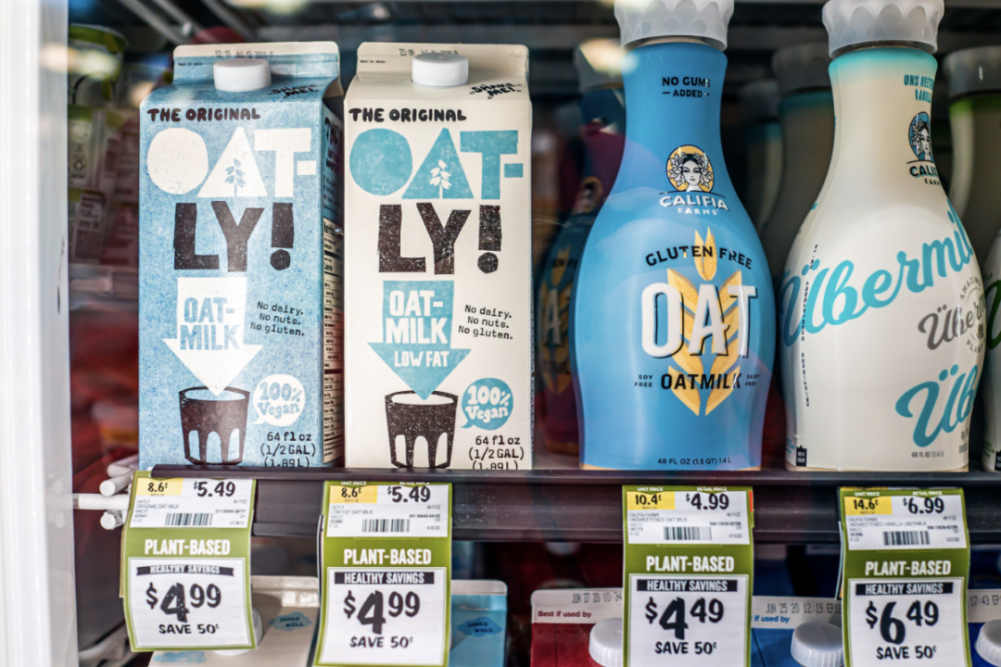KANSAS CITY — The days of soy dominating the milk alternatives category are long gone. Competition continues to grow from other raw material sources. Almond-based alternatives have established solid footing. Sales of oat-based milk alternatives are surging. Barley-based alternatives may be on the verge of impacting the category, and legumes like pea protein provide their own specific benefits.
As the number of sources increases, so do the sales.
Grand View Research, San Francisco, projects the global dairy alternatives market to reach $52.58 billion by 2028 through a compound annual growth rate (CAGR) of nearly 13% from 2021-28. Milk alternatives accounted for more than 67% of the dairy alternatives market in 2020. Grand View Research also expects the global plant-based beverage market, valued at $22.86 billion in 2020, to have a CAGR of 14% from 2021-28.
In the United States, almond-based alternatives held revenue share of over 50% in the category in 2020. Restaurants, eateries, hotels and cafes are including plant-based milk alternatives, especially ones with oats and almonds, in their menus to cater to lactose-intolerant or vegan consumers, according to Grand View Research.
AdAdapted, Ann Arbor, Mich., this year provided data on the rising popularity of oat-based milk alternatives. The company tracks what consumers add to their list-revealing category and product preferences, shopping tendencies and planning habits through apps downloaded on over 70 million devices. Through August, the number of times milk was added to shopping lists decreased by 19% when compared to the previous year. The decrease for almond-based milk alternatives was 20%, but the number for oat-based milk alternatives increased by 64%.
Data from IRI, a Chicago-based market research firm, show sales still increasing for almond-based milk alternatives. US retail sales reached $1.52 billion in the 52-week period ended July 11, up 4.5% from the previous 52-week period. Sales of refrigerated whole milk increased 2.2% to $4.87 billion.
More oat capacity
Two oat milk processors are increasing capacity for their products.
Oatly AB, Malmö, Sweden, plans to build a 280,000-square-foot plant in Fort Worth, Texas, that will produce an estimated 150 million lbs of oat-based milk alternatives per year. SunOpta, Inc., which has its US headquarters in Edina, Minn., plans to open a 285,000-square-foot plant-based beverage facility in in Midlothian, Texas, near Dallas. The company expects the facility to become operational in late 2022. If needed, it could be expanded to 400,000 square feet.
“It is quite likely that the demand we are seeing for our industry-leading oat milk will necessitate the construction of yet another oat processing system in the not-too-distant future and would be in addition to the Texas project,” said Joseph D. Ennen, chief executive officer of SunOpta, in an Aug. 11 earnings call.
SunOpta offers an oat base ingredient that is the liquid from cooked whole oats hydrolyzed and extracted. It has a creamy, smooth, mildly sweet liquid base that lends well to multiple applications from oat milk alternatives and other non-dairy beverages and products like creamers, yogurts and ice cream, said Bryan Clark, vice president of R&D for plant-based foods and beverages at SunOpta.
“Some oat base manufacturers start with oat flour, which can contribute to gritty texture and sedimentation in the package,” he said. “SunOpta’s oat base starts with whole oats. Through our proprietary enzymatic process, the oats yield a smooth, creamy oat base that delivers a pleasant consumer experience.”
The oat base is gluten-free, non-GMO, vegan and free from the major allergens, according to SunOpta.
For its soy base ingredient, SunOpta uses a proprietary process to create a clean profile with minimal beany flavor notes, Mr. Clark said, adding the company has sourced non-GMO and certified organic soybeans to make the soy base for over 20 years. The soy base is the liquid extracted from cooked soybeans with excess fiber removed.
Barley’s benefits
Several qualities enjoyed by barley make the cereal grain an attractive option for milk alternatives, said Kishan Vasani, co-founder and chief executive officer of London-based Spoonshot, during a Food Business News Trends and Innovations Seminar in August. Barley supply is reliable, he said, and the crop is drought-resistant and may be grown in extreme climates. Barley-based milk alternatives also could serve as alternatives for consumers allergic to nuts and soy, Mr. Vasani said. A product called Bright Barley already is available in the United Kingdom. It is low in fat and a source of fiber, and it contains calcium, vitamin D and vitamin B12.
 EverGrain Ingredients, St. Louis, offers EverPro, a barley ingredient that is 85% protein.
EverGrain Ingredients, St. Louis, offers EverPro, a barley ingredient that is 85% protein.
“We consider the big three motivators to be taste, nutrition, and sustainability,” said Pavel Hejsek, product owner of EverPro. “Simply put, current plant-based milks on the market are struggling to deliver on all three of these qualities, and it’s forcing people to make a compromise. If it tastes great, then the nutritive properties are often poor. Conversely, if it has an impressive nutritional profile, then it’s either not the best for the planet or the palate.”
Barley protein comes with a pleasant, malty flavor, he said. In a blind taste test, 53% of consumers preferred the EverPro-based milk prototype to an established market benchmark.
“It is a blank canvas for formulators looking to boost plant-based milks’ nutrition without compromising taste,” Mr. Hejsek said.
Since EverPro is soluble, it does not contribute grittiness, viscosity or any negative texture attributes to dairy alternatives, he said.
EverPro counts as a sustainable, upcycled ingredient since Anheuser-Busch InBev supplies “spent” grains to the company. A third party completed a life cycle assessment for EverGrain and found milk alternatives with EverPro use 20% less land, three times less water and generate five times less greenhouse gas emissions than conventional milk.
Even more options
Peas, chickpeas, pinto beans, black beans and navy beans all may work in plant-based milk alternatives, said Lisa Bradford, principal scientist for Chicago-based ADM.
“Each of those protein ingredients offers nutritional benefits and different consumer-preferred attributes,” she said. “For example, pea is a great solution for shoppers seeking to avoid certain allergens. Pea protein usually has earthy or grassy off-notes. However, ADM’s award-winning ProFam Pea 580 provides clean taste, light color and high functionality, making it easy to incorporate into alternative milk formulations.”
Chickpeas also help to replace proteins and ingredients that require labeling as allergens, she said.
“Both chickpeas and beans have inherent beany notes that may not meet the gold-standard traditional milk flavor that shoppers expect in alternative dairy products,” Ms. Bradford said. “However, with our vertical integration at ADM from seed to ingredient and our cross-functional culinary, flavor and technical teams, we create cleaner-tasting solutions for delicious end products.”
ADM recently launched MaxFlex powdered plant protein blends that come with a protein digestibility corrected amino acid score (PDCAAS) of 0.89 or higher. The highest score possible is 1.0.
 “The right blend helps formulators mitigate taste and texture challenges while adding functionality, nutritional benefits and protein diversity through plant variety,” Ms. Bradford said. “For example, we use our MaxFlex blend of pea and rice protein powders to increase protein content and optimize palatability through improved taste and appearance in alternative dairy offerings. We also combine our pea with other beans and pulses, like in our rich, smooth and protein-forward chocolate plant milk prototype, which contains our pea and black bean ingredients.”
“The right blend helps formulators mitigate taste and texture challenges while adding functionality, nutritional benefits and protein diversity through plant variety,” Ms. Bradford said. “For example, we use our MaxFlex blend of pea and rice protein powders to increase protein content and optimize palatability through improved taste and appearance in alternative dairy offerings. We also combine our pea with other beans and pulses, like in our rich, smooth and protein-forward chocolate plant milk prototype, which contains our pea and black bean ingredients.”
Ripple Foods, Berkeley, Calif., uses yellow peas in its range of dairy-free milk alternatives, protein shakes and frozen desserts. Ripple’s products contain half the sugar of dairy milk and 50% more calcium, according to the company. Ripple Foods this year raised $60 million in a Series E funding round led by Rage Capital, Ajax Strategies and S2G Ventures.
Flaxseed is the star ingredient in Malibu Mylk, Malibu, Calif. The flaxseed contains fiber, omega-3 fatty acids and protein. Varieties include unsweetened vanilla flax milk, unsweetened flax milk, oat plus flax milk and original flax milk. Good Karma Foods, Boulder, Colo., this year launched Plantmilk, an alternative made with a blend of flax, oat and peas. The product contains 5 grams of protein and 800 mg of omega-3 fatty acids per serving.

